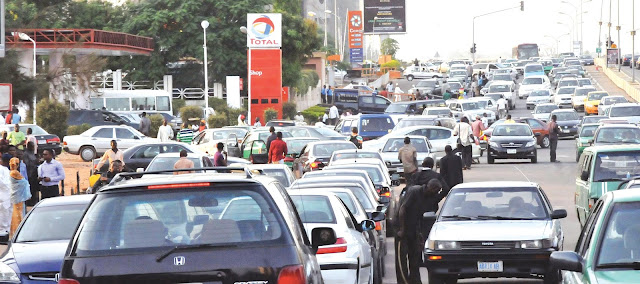
Nigeria, in spite of the declining economic fortunes, spent N595.5 billion on the importation of fuel in the first six months of 2016, rising by N34.3 billion from the amount spent in the last six months of 2015.
According to data obtained from the National Bureau of Statistics, NBS, the country spent N276.226 billion on petrol import in the first quarter of 2016, while N319.28 billion was spent in the second quarter.
The NBS report showed that the amount spent on fuel importation appreciated by 6.1 percent, compared with N561.2 billion spent in the second half of 2015.
However, the report pointed out that the amount spent on fuel import in the first half of 2016 was 12.18 percent lower, which is N82.63 billion less than the N678.13 billion spent on fuel imports in the first half of 2015.
The report also highlighted that the country spent N1.24 trillion on the importation of fuel in 2015.
For the first half of 2016, the NBS disclosed that Nigeria recorded total imports of N3.57 trillion.
This meant that fuel imports accounted for 16.7 percent of Nigeria’s total import in the first six months of 2016. Also, data obtained from the Central Bank of Nigeria, CBN, revealed that the oil sector accounted for 19 percent of total foreign exchange disbursements of $5.85 billion by the CBN in the first quarter of 2016.
On the other hand, the CBN noted that in the second quarter of 2016, the oil sector accounted for 23.3 per cent of the $6.09 billion foreign exchange disbursed by the CBN in the second quarter of 2016. Recently, though, the difficulty in accessing foreign exchange and the declining value of the naira had made imported fuel expensive, a development which had led to calls in some quarters for a further hike in the price of the commodity.
This situation was further worsened by the inability of the country to fix the refineries, making the country to rely mainly on importation and other arrangements entered into by the NNPC, for about 95 per cent of the country’s fuel consumption.
Expectedly, the rising fuel imports had helped in no small measure in putting additional pressures on the country’s foreign reserves and contributing to the worsening economic situation.
In an interview with newsmen, Executive Director, Centre for Social Justice, CSJ, Dr. Eze Onyekpere, blamed Nigeria’s inability to refine petroleum locally as one of the major factors responsible for the economic crisis the country has been plunged into.
He said, “We should rather be thinking of how to reduce the price of energy which has played a key role in ramping up the inflationary spiral of recent months.
“The reason for this suggestion is clear— the foreign exchange regime that has seen Nigeria take a bashing and our failure to refine petroleum at home.
Evidently, there is no official plan to change the trajectory of the story beyond the private sector-led Dangote refinery which preceded this administration.”
Also speaking, Professor Chijioke Nwaozuzu, a Downstream Petroleum Economics & Policy Expert lamented that despite producing an average of 2.38 million barrels per day in 2011 and holding the title of Africa’s largest crude oil exporter, Nigeria is nowhere near its productive potential, adding that ironically, Nigeria has to import refined fuel, due to its unproductive and inefficient oil refineries that operate at below 25 per cent of name- plate capacity.
According to Nwaozuzu, who is also Deputy-Director at Emerald Energy Institute for Energy & Petroleum Economics, Policy, & Strategic Studies, University of Port Harcourt, Nigeria’s aged national refineries have the worst capacity utilization levels of all countries with refineries in Africa. He said, We virtually import almost all the petroleum products we consume in Nigeria, and export all the crude oil we produce. In order to be self-sufficient in the supply of petroleum products, we require a refining capacity of about 750,000 barrels per day.
“The implication is that we need to construct new refineries with speed, because the government cannot afford to spend the meagre revenues accruing from crude oil sales on importation of refined products.” He further advised that to salvage the Nigerian economy from the doldrums, the Federal Government should increase in-country crude refining capacity for domestic self-sufficiency and export of petroleum products. “For drastic economic development in the face of dwindling oil revenue, we must face the fact that, there are no easy options; there are only hard choices to be made,” he surmised.



No comments
Post a Comment
Kindly drop a comment below.
(Comments are moderated. Clean comments will be approved immediately)
Advert Enquires - Reach out to us at NigerianEye@gmail.com